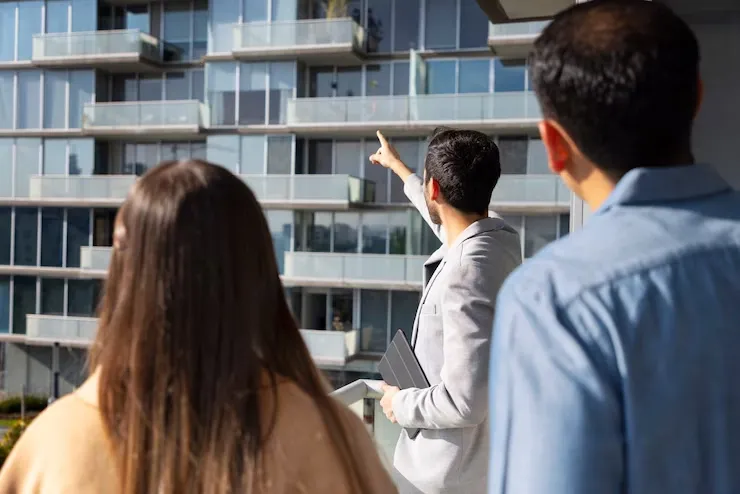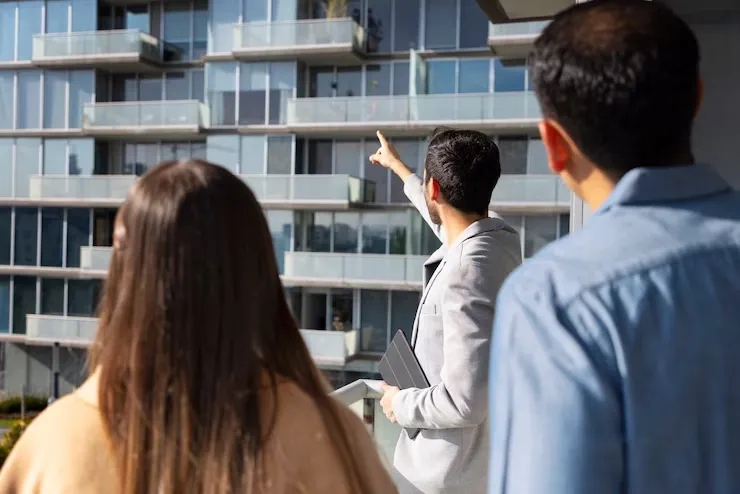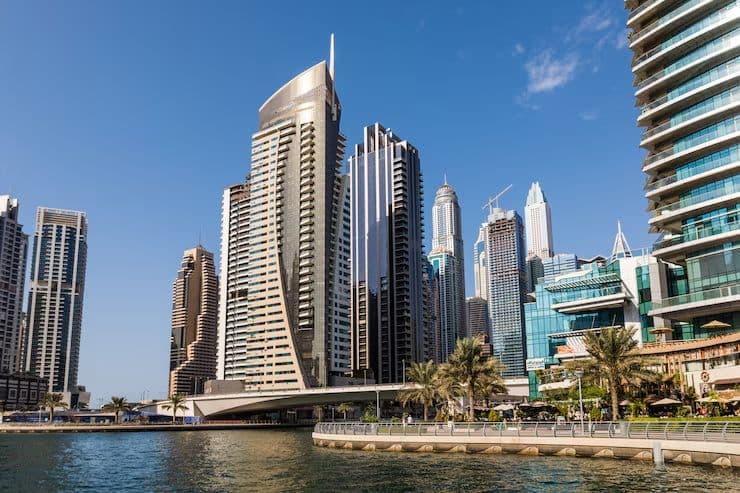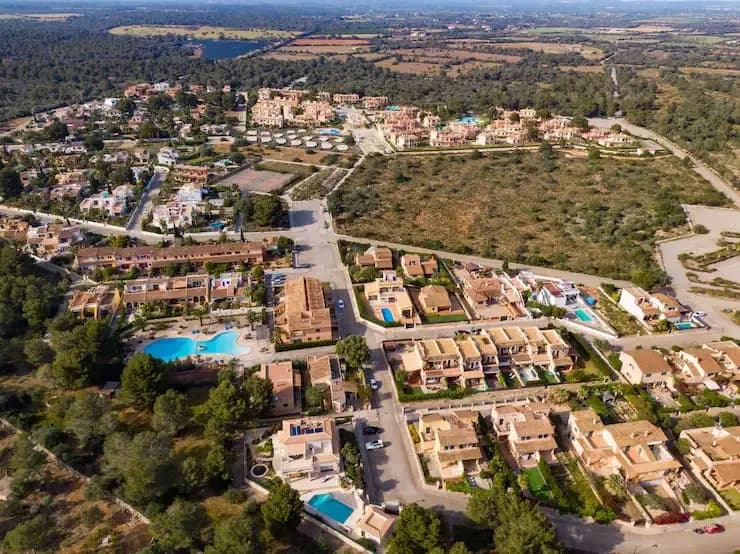Real estate is one of the most influential sectors in any economy, offering opportunities for income, investment, and development. Whether you’re a beginner or a seasoned investor, knowing how the real estate industry works can help you make informed decisions. This guide offers a comprehensive look into understanding real estate development, the real estate development process, investment methods, and career options.
Understanding Real Estate Development
Understanding real estate development is essential for anyone looking to participate in the real estate industry. It involves the process of turning raw land or underused property into usable, income-generating real estate. Developers must assess market needs, design the project, obtain funding, oversee construction, and finally lease or sell the completed property. Each stage of the real estate development process requires deep expertise and strategic planning.
What Is Real Estate Development?
Real estate development is the transformation of land or existing structures into new or renovated buildings that meet market demands. This includes residential complexes, office buildings, shopping centers, and more. It’s a multidisciplinary process that combines market research, legal compliance, architecture, finance, and construction. Successful developers understand how to balance opportunity and risk while navigating changing trends like the rise of sustainable housing or the growing demand in the real estate market in Dubai.
Also read: Investing in Property for Beginners
What Does the Real Estate Development Process Look Like?
The real estate development process is a detailed and structured journey that takes a concept from raw land to a functional and profitable property. It typically involves research, planning, securing permits, funding, construction, and marketing. Each step must be executed precisely to avoid costly delays and legal hurdles. Understanding real estate development allows professionals and investors to track progress, forecast returns, and manage risk.
8 Stages of Real Estate Development
Real estate development doesn’t happen overnight. It follows a systematic series of stages that allow for planning, execution, and delivery of a project. Each stage is critical in shaping the outcome of the investment.
1. Pre-Development Planning
This stage involves conducting feasibility studies, analyzing the target market, identifying potential land or property, and calculating projected returns. Without thorough planning, the project risks failure before it even begins.
2. Land Acquisition
Developers acquire land or underutilized property with the intention of improving it. Legal checks, zoning restrictions, and title verification are handled during this phase.
3. Project Design
Architects and urban planners come into play to design the proposed development. The design must meet regulatory requirements while being functional and appealing to potential users or buyers.
4. Financing
The real estate development process requires significant capital. Developers seek funding through banks, private investors, or partnerships. Investors in the real estate investment in Dubai sector often consider construction loans or Real Estate Investment Trusts (REITs).
5. Permits and Approvals
This phase involves obtaining building permits, environmental clearances, and all necessary legal approvals from local authorities. Delays here can halt the entire project.
6. Construction
Once financing and permits are in place, construction begins. Developers oversee the entire process to ensure it stays on budget and schedule, often hiring contractors and engineers to manage daily operations.
7. Marketing and Leasing/Sales
Before completion, marketing campaigns are launched to attract buyers or tenants. A real estate consultant plays a key role in pricing strategies and client targeting.
8. Post-Construction Management
After the building is completed, property management teams may take over. This includes maintenance, leasing operations, and property value enhancement to ensure long-term profitability.
Also read: Future Developments in Dubai
What Is a Real Estate Developer?
A real estate developer is the driving force behind the project, coordinating all stages from start to finish. They are visionaries who assess opportunities, acquire resources, lead negotiations, manage teams, and take on financial risks. Developers may focus on residential, commercial, or mixed-use projects and often work closely with government agencies and urban planners. Successful developers are strategic thinkers with strong leadership and financial acumen.
Commercial vs. Residential Real Estate Development
The differences between commercial and residential development are crucial to understanding real estate development. Commercial projects include offices, hotels, retail centers, and warehouses. They often yield higher returns but involve longer timelines and greater risks.
Residential development involves houses, apartments, and condominiums. It’s more accessible to new investors and generally provides quicker returns due to higher demand. Each sector has its own dynamics, regulatory framework, and consumer base, influencing decisions made during the real estate development process.
Also read: Locations for Real Estate Investment in the UAE
What Are the Types of Real Estate?
Real estate is classified into several categories, each with distinct characteristics and investment considerations. These classifications are essential to grasping the broader landscape of understanding real estate development.
Residential Real Estate
This includes single-family homes, townhouses, apartments, and condominiums. It is the most common type, appealing to both individuals and investors due to consistent demand. Buyers here are often emotionally attached to their purchases, which can influence pricing and trends.
Commercial Real Estate
Office buildings, retail stores, malls, and hotels fall under this category. Income is generated primarily through leasing, and tenants are typically businesses. This type requires more complex leases and larger capital but offers stable returns over time.
Industrial Real Estate
Warehouses, manufacturing plants, and distribution centers serve logistical and production needs. With the rise of e-commerce, demand for industrial spaces has grown significantly. This type usually requires proximity to transportation hubs.
Land
Undeveloped land provides opportunities for future development or agriculture. It offers flexibility but also involves zoning issues, environmental concerns, and long-term planning.
Mixed-Use Real Estate
These developments combine residential, commercial, and sometimes industrial spaces within a single project. They are popular in urban areas where space is limited and convenience is essential. Mixed-use projects offer diversified income streams and community value.
How to Get Started in Real Estate Development
Entering the world of real estate development begins with education and market awareness. Study local trends and regulations, especially if you’re targeting areas like Dubai, which offer rapid growth and innovation. Connect with professionals, seek mentorship, and start small to gain experience. Engage a real estate consultant to guide your early decisions. Practical knowledge of finance, legal requirements, and construction can accelerate your success.
Also read: How to Sell Your Property in Dubai
How to Invest in Real Estate
Real estate investment offers multiple entry points depending on your capital and risk appetite. Options include buying rental properties, participating in real estate crowdfunding, investing in REITs, or financing development projects. For example, in Dubai, pre-construction investment is a popular strategy due to favorable pricing and high ROI. Before committing, always conduct due diligence and consult legal and financial advisors.
What Are the Best Ways to Finance a Real Estate Investment?
Financing is central to the real estate development process. You can use traditional mortgages for residential properties or construction loans for development projects. Private equity and joint ventures are common for larger projects. For passive investors, REITs offer exposure without ownership responsibilities. Each financing method has implications for cash flow, risk, and control, so it’s important to match the strategy with your investment goals.
Also read: Buying Property in Dubai as a Foreigner
What Are the Benefits of Real Estate Development?
Understanding real estate development reveals its many advantages. These include long-term wealth creation through property appreciation and rental income. Developers can also enjoy tax incentives, especially in emerging markets. Development projects contribute to urban infrastructure, create jobs, and often improve local communities. Additionally, real estate acts as a hedge against inflation and adds diversity to investment portfolios.
What Careers Are Common in the Real Estate Industry?
The real estate industry is vast, offering various career paths beyond development. Professionals can work as property managers, investment analysts, brokers, architects, or construction managers. Urban planners and sustainability experts are also in demand due to the growing emphasis on green construction. Whether you’re advising clients, overseeing construction, or analyzing deals, each role contributes to the real estate development process.
Also read: what is dubai municipality housing fee
Unlocking Long-Term Success Through Real Estate Development
The real estate industry offers dynamic opportunities for building wealth and influencing the built environment. By understanding real estate development and mastering the real estate development process, you can make smarter investments, build impactful projects, and carve a successful career. Whether you’re starting small or aiming big, real estate remains a powerful path to long-term success.
FAQ
What is the purpose of real estate development?
To transform land or existing properties into functional, valuable assets that meet residential, commercial, or industrial needs while generating profit and serving communities.
What major is best for real estate development?
Degrees in real estate, finance, architecture, civil engineering, or urban planning provide the necessary knowledge and skills for entering the field.
What is the formula for real estate development?
There is no fixed formula, but most developers evaluate a project’s feasibility through:
Feasibility = (Projected Revenue – Total Development Costs)
A positive result indicates a viable project.
What is a real estate development model?
It’s a financial framework that outlines estimated costs, timelines, and revenues for a project, often used to secure investment and guide decision-making.
How to become a real estate developer with no experience?
Start by learning the industry, building a network, and getting involved in small projects. Partner with experienced developers and consult professionals to gain real-world insights.






